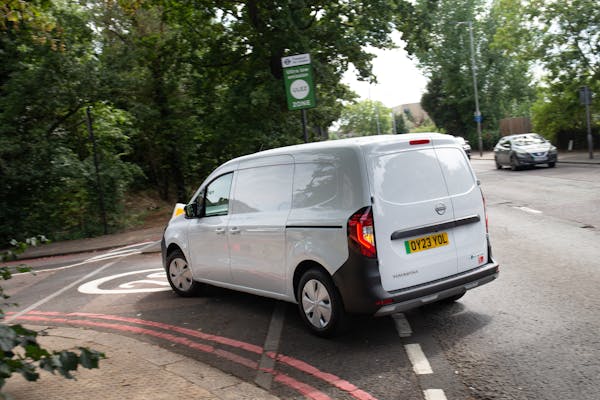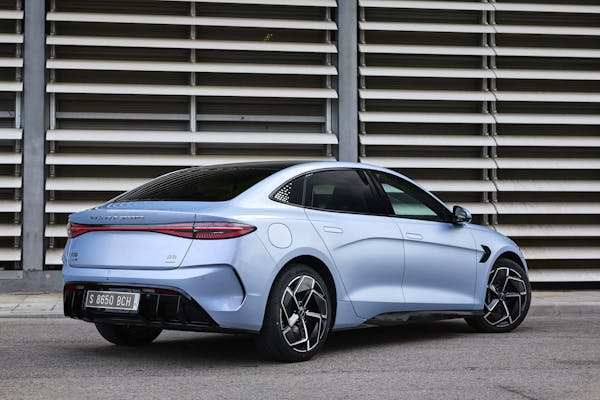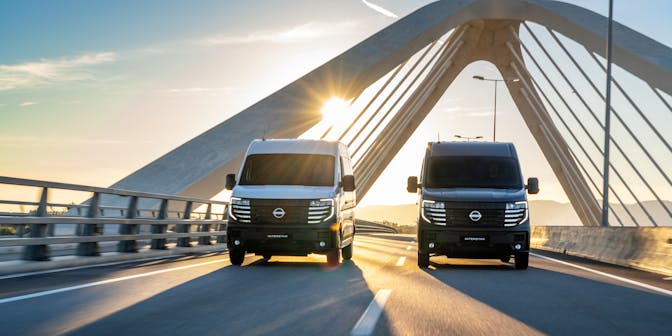Why 2025 is a turning point for SME fleets
2025 is more than just another calendar year, it’s a critical tipping point for how UK small and medium-sized businesses manage their vehicles. For many, decisions around SME fleets have often been driven by short-term costs or convenience. But now, electrification isn’t just a nice-to-have, it’s becoming a necessity. Let’s take a look at the reasons why.
Regulatory pressure is accelerating

The UK government has committed to ending the sale of new petrol and diesel cars and vans by 2035, and the electrification shift is already well underway. If you operate in ULEZ-compliant zones such as London, Birmingham, or Bristol, your older models may already be costing you £12.50 or more per vehicle each day.
And electrification isn’t just future talk, it’s happening now. According to the Society of Motor Manufacturers and Traders (SMMT), battery electric vehicles (BEVs) represented 19.6% of all new car registrations in 2024, with roughly 21.6% share this year to date in June 2025. That’s approaching 1 in every 5 new cars on the UK roads this year now being electric.
At the begining of this year we forecasted that UK BEV sales will grow to approximately 440,000 units in 2025, taking around 24% of the total new car market — up from 19.6% in 2024 but still short of the 28% ZEV mandate goal. (DriveElectric 2025 EV registrations forecast)
This growing momentum makes it clear: electrification isn’t just a policy goal, it’s already reshaping UK fleets. For SME decision-makers, aligning sooner rather than later gives you both operational and financial head start as regulations tighten.
Fuel and maintenance costs are squeezing margins
With fuel prices remaining volatile and servicing costs on the rise, traditional vans and company cars are becoming financial liabilities. In contrast:
- Leasing an electric car or van can result in a significant decrease in per-mile running costs, potentially by as much as 70%, particularly when leveraging home or workplace charging.
- Electric vehicles have fewer moving parts, meaning lower maintenance costs and fewer breakdowns.
For SMEs working on tight margins, predictability and cost control are key and leasing an electric vehicle ticks both boxes.
More EV options available now opens the door

In the past, many small businesses were put off EVs by the higher purchase price. Leasing removes that barrier — and leasing a high-quality used EV can bring the cost down even further, making it much more accessible for SMEs.
- No large capital outlay
- Fixed monthly costs
- Maintenance costs can be included to your monthly payment
- Choose whether you want to return or upgrade at end of lease with no further commitment or hassle of resale
What’s more, business car leasing options have evolved. It’s not just premium brands like Tesla anymore, there’s now a wider range of affordable models from trusted manufacturers like Kia, MG, Nissan, Peugeot, and Vauxhall, as well as many new manufacturers like BYD, arriving in the UK, shaking up the market with practical options for every kind of business use.
And to make the move even more attractive, the government has launched a new EV grant for businesses. This scheme offers financial support to encourage companies to lease or purchase electric vehicles, helping to lower the cost of adoption and accelerate the UK’s shift to clean transport.
Used EV leasing - High-quality, lower-cost options for SMEs
Even better, SMEs can now take advantage of used EV leasing through DriveElectric. These are carefully selected, nearly-new electric cars that offer all the benefits of electric car leasing but at a lower monthly cost.
- Access premium electric models (e.g. BMW, Tesla, Polestar) at a fraction of new lease prices
- All vehicles are carefully checked and approved, with low mileage and full service history
- Fast delivery with contracts as short as 12 months, perfect for trying before fully committing or for those employees who are on shorter term/ interim contracts.
Used EV leasing makes it even easier for SMEs to go electric without compromise, whether you’re just starting out with one vehicle or adding EVs alongside your existing fleet.
Customers and supply chains expect greener fleets
Sustainability is no longer just a “nice to have”, it’s increasingly a requirement in how companies choose their suppliers and partners.
Larger organisations, particularly in construction, logistics, retail, utilities, and professional services, are under pressure to meet ESG goals, and that means looking closely at the environmental impact of their entire supply chain, including subcontractors, service providers, and transport partners.
If your SME provides goods or services to these businesses, you may already be seeing:
- Sustainability questionnaires or carbon reporting requirements in tender processes
- Requests to declare your fleet emissions or future decarbonisation plans
- Pressure to operate only ULEZ/Clean Air Zone compliant vehicles within certain contracts
Many SMEs risk losing out on valuable contracts, or failing to qualify for tenders altogether if they can’t demonstrate a clear move toward lower emissions.

A greener fleet builds credibility and wins work
Switching to electric vehicles isn’t just a compliance exercise, it sends a strong message that your business is modern, responsible, and future-ready. This can directly:
- Help you win new business by meeting supplier selection criteria
- Improve relationships with corporate clients and procurement teams
- Open doors to green supply chain frameworks or preferred supplier lists
- Support B Corp, ISO 14001, and other sustainability certifications
Whether you run two vans or a small team of company cars, investing in a cleaner fleet can become a powerful sales and marketing asset, not just a transport decision.
EV Salary Sacrifice Schemes are now the #1 employee benefit in the UK
Offering electric vehicles through salary sacrifice schemes is one of the most effective ways for SMEs to boost employee benefits, enhance retention, and support corporate ESG goals, all while making EVs more affordable for staff.
With a salary sacrifice scheme, employees can lease an electric car by sacrificing a portion of their pre-tax salary. This reduces their taxable income, which means they pay less Income Tax and National Insurance. Meanwhile, employers benefit from National Insurance savings, improved staff satisfaction, and reduced fleet emissions.
Key benefits of salary sacrifice schemes include:
-
Save up to 40% on an electric vehicle - Choose from brand new or high quality second hand, the salary sacrifice company car choice is yours.
-
For employers, there’s also the benefit of having to make lower National Insurance contributions.
-
Modular salary sacrifice electric car scheme to suit your business
-
Part of your carbon reduction strategy
-
An employee benefit that really helps to keep and attract top talent
-
Wrap the cost of a professionally installed home EV charger into the package
-
Zero cost to set up our Salary Sacrifice scheme for your business
-
Additional perk options such as access to residential energy tariff + free energy miles (T&Cs apply)
In brief
If your SME still runs diesel vans or petrol cars, 2025 is the time to start planning the switch. The right leasing partner and vehicle selection combined with business lease offers like electric car leasing and salary sacrifice schemes make switching to electric cost-effective, low-risk, and less intimidating than you think.
Get in touch with our EV fleet experts
Whether you're just starting out or looking to take your electric fleet to the next level, DriveElectric is here to help. From flexible leasing and salary sacrifice schemes to expert guidance on grants and vehicle choice, we’ll support your business every step of the way.
Published: Aug 2025
Our Expert Guides
Electric vehicle winter driving tips and advice

Why 2025 is a turning point for SME fleets
6 surprising things you didn’t know about electric vans
